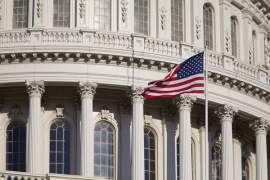
Understanding the 13th Amendment

Popular In Constitution
Purpose Of Lifetime Appointment And Pros And Cons Enumerated Powers Bicameral Legislature Background Article 3 Of The Constitution We The People 1st Amendment Who Wrote The Constitution Judicial Review Equal Protection Clause 5th Amendment 10th Amendment Three Fifths Compromise
The Thirteenth Amendment is arguably one the most important Amendments to the United States Constitution and the impact it had on the history of the United States. It would become a change to the landscape of America and secured a more appropriate application of human and equal rights to its citizens.
The 13th Amendment is the provision that officially called for the abolishing of slavery and the prohibition of such practice, including involuntary servitude. Involuntary servitude would only be acceptable as a form of punishment for a crime. The 13th Amendment was adopted on December 6th, 1865, but was introduced for approval earlier the same year.
The Thirteenth Amendment is divided into two sections and was the first of what are now referred to as the Reconstruction Amendments. The Thirteenth Amendment is as follows:
● Section 1: Neither slavery nor involuntary servitude, except as a punishment for crime whereof the party shall have been duly convicted, shall exist within the United States.
● Section 2: Congress shall have the power to enforce this article by appropriate legislation.
The 13th Amendment would prove to be an important part of United States history, not only affecting the future of further generations, but as well as the times in which it was enacted, providing for the spark of the Civil War. Prior to the 13th Amendment, all legislation regarding slavery related to its protection as an accepted practice. As a country, the United States had stopped importing slaves, but on the domestic front, little was done to abolish the practice of slavery.
However, the movement toward abolishing slavery had begun as early as 1839 by a proposal submitted by John Quincy Adams. More proposals were to follow, but it would not be until 1863 when James Mitchell Ashley submitted his proposal. Others would follow, as drafted by James F. Wilson and John B. Henderson. The combination of these three proposals would become the original Amendment proposal presented to the Senate. In the same year, Abraham Lincoln would issue the Emancipation Proclamation, which would mark the beginning of the movement to abolish slavery.
The Thirteenth Amendment would provide for several clauses for consideration, such as involuntary servitude. Involuntary servitude would be classified when the master subjects a servant to the following conditions:
● Threats of or actual use of physical force;
● Threats of or actual state-imposed coercion;
● Fraud or deceit involving a minor, an immigrant, or a mentally incompetent individual.
Any of these conditions, combined with the imposing of a person to labor or service against his/her will, would be in violation of the 13th Amendment. The ban on involuntary servitude was first tried by the U.S Supreme Court in 1911 in the Baily v. Alabama case, in which the decision was upheld.
The concept of peonage is also related to involuntary servitude. This refers to a person bound to involuntary servitude, in which the service constitutes the payment of a debt. However, if peonage is to be found to violate the same conditions prohibited under the Thirteenth Amendment for involuntary servitude, it is also considered unconstitutional.



















